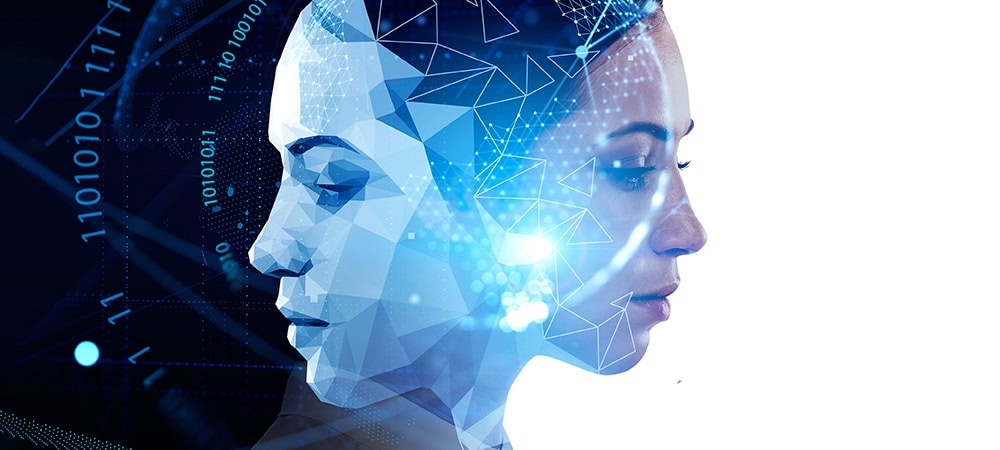AI on an adventure trip
The following quote comes from Samantha in the U.S. science fiction film drama "Her" by Spike Jonze: "The DNA of who I am is based on the millions of personalities of all the programmers who wrote me. But what makes me me is my ability to grow through my experiences. So basically, I'm evolving every moment, just like you."
Samantha is an AI-based voice assistant and lets us experience in the film how close and yet alien digital assistants are to us today. When discussing artificial intelligence (AI), we often think of superheroes with human consciousness from movies like "Terminator." While we are terrified of the supposed destruction machines on two legs or dream of an unrequited love affair with the AI avatar, they have long been among us: at the interface with humans, AI solutions rely on analytics and automation. Today, they are used in almost all companies via standard software.
AI potentially affects every one of us. Certainly, we have already had to deal with intelligent networks today. We just don't necessarily take note of them or consider them normal when our laptop unlocks keys with facial recognition, Google's search function generates suggestions or the autocorrect in a text message has learned our error patterns. Intelligent assistance systems work in our smartphones or in the children's room at home. They know how we act, what keeps us busy and motivated. They know us better than close friends and provide more accurate advice than insurance agents.
Ask questions for the future
Doesn't it stand to reason that artificial intelligence should also be used in HR work within the company? Advocates of innovation in human resources (HR) yearn for chatbots, biometric sensor technology and natural language processing (NLP) in the selection of applicants. While representatives of this faction seek salvation in the latest births of digital technologies, others fold their arms along the lines of "Either human or machine."
We will not stop the technology, because machine learning as a manifestation of AI is already showing today, especially in recruiting, how recruitment is changing and what potentials and risks we are facing.
It is time for us in HR to ask ourselves questions about the future with constructive skepticism and an eye for opportunity: Which AI tools will serve HR and the workforce in terms of the value they seek to create? How can we introduce and manage them responsibly as well as ethically sensitively? How is artificial intelligence changing how companies collaborate? Certainly, it doesn't hurt to browse the tool zoo for HR processes and explore what's possible in the HR value chain, from recruitment to workforce separation. But beware of the snowball effect: AI tools are much more than HR tools for increasing efficiency.
AI changes culture, no matter in which area of the company it is used. HR is affected even if HR's own processes are still swimming in the analog primordial soup, because automation in the production process inexorably starts a cultural landslide. In the best case, the landslide is actively accompanied by HR and leads the organization to a new level of value creation, collaboration and development.
Human resources managers are therefore challenged to get closer to the basic technological features and smart instruments that are used on the factory floor, for example. Only in this way can they recognize the impact on the social side and develop new ideas on how to further develop identification and co-creation in the organization. This raises new, bigger questions: How can we design a socially acceptable work environment in which people and intelligent machines combine their complementary skills in a beneficial way?
This sounds like a great design task for all HR teams that today groan under the burden of manual administrative work. If they hand over some of this to an AI assistant like Samantha, then space is created to initiate structural changes in their own area and to make the company a
healthy interaction between AI and human cooperation. Satisfying work is the reward for courageous experimentation and curious questions about a better working world.
If you want to know more about this topic, the book "Artificial intelligence in human resources"is definitely a good introduction to the topic. With examples, practical tips and concrete guidelines for the implementation of AI-supported HR work.






